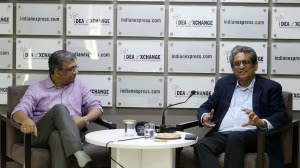Somak Raychaudhury’s Vision for Education at Ashoka University
In a recent conversation at The Indian Express’s Idea Exchange, Somak Raychaudhury, Vice-Chancellor of Ashoka University, elaborated on the changing landscape of higher education. Renowned as one of India’s best-known astrophysicists and the former director of the Inter-University Centre for Astronomy and Astrophysics (IUCAA), Raychaudhury emphasized the necessity of rethinking the traditional education system that has prevailed for generations.
The Traditional Model is Obsolete
Raychaudhury’s thoughts challenge the existing educational framework: the notion that students should enter university at 18, complete their degrees by 21, and then be expected to stay with the same field for the rest of their lives. “That template is no longer sustainable,” said Raychaudhury. With the fast pace of technological and scientific advancements, continuous learning is no longer an option but a necessity. He highlighted that higher education institutions must evolve to accommodate lifelong learning, a mindset that encourages both young students and professionals to return to universities at various stages of their careers.
Ashoka University: A Unique Blend of Science and Liberal Arts
One of the primary reasons Raychaudhury was brought to Ashoka University was to help establish strong science faculties. Ashoka University, well known for its liberal arts approach, is now among the first institutions in India to integrate robust science departments. Raychaudhury underscored the importance of creating a synergy between science and liberal arts, aiming to produce well-rounded individuals who can contribute meaningfully to diverse sectors, from technology to policy.
This innovative approach aims to break the traditional silos of science and humanities, where each domain operates in isolation. According to Raychaudhury, blending these disciplines helps foster creativity and critical thinking, empowering students to tackle complex, interdisciplinary challenges in a rapidly evolving world.
The Need for Prioritizing Research
Raychaudhury also called for a renewed focus on research at universities. While teaching is an integral part of any institution, it should not overshadow the importance of research. He stressed that universities must be at the forefront of producing groundbreaking research and contributing to global knowledge, especially in the fields of science and technology.
“Universities must serve as incubators for ideas, innovation, and discovery,” Raychaudhury stated, emphasizing that Ashoka University’s commitment to research is pivotal in shaping the future of education in India. He highlighted the institution’s ongoing efforts to establish cutting-edge research centers that focus on diverse areas of study, from artificial intelligence to sustainable development.
Political Dynamics on Campus: A Delicate Balance
The conversation also delved into the role of politics on university campuses. Raychaudhury, with his extensive experience in academia, acknowledged that campuses are often at the center of political debates. However, he suggested that while students should have the freedom to voice their opinions and engage in political discourse, it is essential to maintain an atmosphere conducive to learning. He called for universities to adopt a balanced approach, ensuring that political discussions do not overshadow the academic pursuits that are fundamental to higher education.
A Call for Transformation in Indian Higher Education
Raychaudhury’s remarks reflect a growing sentiment among educators and thought leaders in India: the need to reimagine the country’s higher education system. The shift towards interdisciplinary studies, research-driven universities, and an emphasis on lifelong learning will not only benefit students but will also contribute to India’s position as a global leader in science, technology, and innovation.
Ashoka University’s approach, under Raychaudhury’s leadership, is setting a precedent for others to follow. As the demand for knowledge continues to grow, institutions must adapt to stay relevant and provide students with the tools they need to navigate an increasingly complex world.
Somak Raychaudhury’s vision for the future of higher education in India challenges established norms and encourages a more dynamic, flexible approach to learning. As Ashoka University continues to lead the way, other institutions across the country must take note of this evolving model that blends science, liberal arts, and research while fostering continuous learning.


Leave a Reply